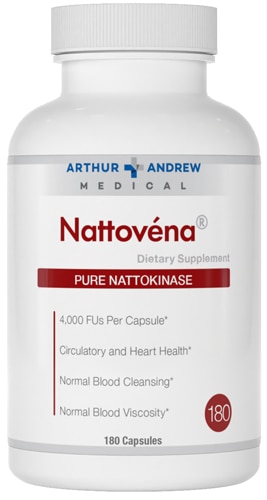[vc_row][vc_column][vc_column_text]Truth and trust are expensive commodities in today’s market. Skepticism – for good or ill – is the dominant currency in an age where just about any message can make it to the masses. Plus, proof is a malleable concept that adapts to context and culture. So the first response to “prove it” is:
What sort of proof will you believe?

Science doesn’t just prove the world is round – it makes the world go ‘round! As the basis for education, medicine, agriculture, and economics, The
scientific method is an ongoing and circular process of observing, predicting and testing that helps us prove and trust what’s true. Since we all approach proof with assumptions and biases, it’s important to establish this common framework for our shared beliefs, ideas and values.
Proving that something works is important in any sphere, but proof carries much greater weight and consequence when it comes to human health. That’s why pharmaceutical drugs go through rigorous research phases before they make it on your doctor’s prescribing pad. With life and limb at stake, drug makers sign up for multiple trips through the scientific method to earn the “clinically proven” stamp.
The phases of clinical proof
In the pharmaceutical world, ideas for new drugs often begin from observing a health symptom or condition for which there isn’t yet a remedy. And what’s the first step in the scientific method? Observation. Then, using a mix of research and deductive reasoning, scientists will then propose a formula that may treat or mitigate what’s been observed.
Split into four phases,
clinical trials represent the rest of the scientific method, with each phase involving testing, analyzing and drawing conclusions. But before drug candidates get a chance to prove that they work, they must prove that they’re safe. That’s phase 1. Phases 2 and 3 involve more numerous and diverse participants to further verify safety and prove efficacy, with phase 4 dedicated to a post-market safety watch.
By the time a drug is approved by the FDA, it’s shown repeatable evidence that its benefits outweigh its risks, taking responsibility for any contrary results once it hits the market. True
clinical research is precisely designed and tightly regulated in order to validate what’s proven.
Does the same hold for “clinically proven” supplements?
Keeping supplement claims in their lane
Both drugs and supplements rely on science to benefit our health. But while pharmaceuticals are required by law to prove they’re effective and safe, supplements demand a greater degree of faith from consumers. High-quality supplements might be formulated with similar expertise and rigor, but since the g
overnment deems supplements “food,” they’re in a whole different category in terms of scientific proof.
That said, the clinical trial process can be used for more than drug validation. Since supplements mimic the form and consumption patterns of many oral medications, the gold-standard steps for drug research can easily be adopted to test supplements. While
supplements are never be a replacement for prescribed drugs, the scientific method works just as well to examine the safety and efficacy of a supplement ingredient or formula.
†
But there’s a catch. Drugs passing the phase 3 proof-test have the honor of making profound claims about preventing, treating or curing a disease. And if there’s anything you should know about supplements, let it be this:
supplements cannot claim to prevent, treat or cure a disease. Supplement makers can run flawless clinical trials, but they can’t make the claims that drugs can.
Science or sales?
The supplement market is hotter than ever, making the competition fierce. It’s not coincidental that the
rising interest in “clinically proven” supplements has followed industry pressure for brands to differentiate their products. With customers demanding greater transparency and ownership of their health, marketing supplements is all about building (and buying) reputation and trust.
Any armchair expert can pull up research on the internet refuting the efficacy of supplements. The problem is that many of these studies are using an unfair standard when they’re designed to prove a claim only a drug can make. When a widely circulated
study on whether multivitamins could prevent cancer or chronic disease was published in 2006, it left a black mark on a consumer good that can’t make those claims anyhow.
Like drugs, the government
does regulate how supplements are made and marketed. In 2022, the Federal Trade Commission (who partners with the FDA on surveilling supplement marketing) announced stricter
scrutiny on the use of clinical studies for claims substantiation. With vigilant customers left with an overall impression that top-quality brands can deliver top-quality evidence, “clinically proven” claims have become tops for sales.
Does that make all “clinically proven” claims a marketing ploy? Hardly. Along with consumer and brand interest in seeing supplements backed by clinical trials, research organizations have answered the call to offer robust scientific methods for supporting supplement claims. But here’s where that widespread skepticism comes in handy. Deciphering the truly proven from the clinically counterfeit requires a bit of
scientific know-how.
Stretching evidence
First of all, there’s a key difference between scientific evidence and “clinical proof”. Remember, clinical research is conducted with tight controls over the who, what, where, when and how on what’s being studied. That means the results and conclusions apply to the specific treatment, population and conditions used for the trial. And since
supplements can only make claims for healthy populations, generalizing these data to everyone, everywhere is almost always a stretch.
Scientific evidence can refer more broadly to existing research on individual ingredients, like vitamin D or
berberine, and oftentimes this means studies done in animals or cells (aka “pre-clinical” research). Some top ingredient suppliers (such as patented ingredients like
Magtein®) will run clinical trials with their ingredients, passing on the “clinically proven” tag to supplement manufacturers who stretch the claim to a multi-ingredient formula.
Since clinical proof is more limited in its scope, a truly “clinically proven” supplement is one whose exact combination and amounts of ingredients are taken by individuals matching the intended customer. A clinical trial showing that 18-22 year-old college students taking 500 mg per day of
ashwagandha felt less stressed during final exams carries little significance when that ashwagandha is one ingredient in a 8-ingredient herbal formula taken by 40-55 year-olds during an election year.
†
Clinical proof can also be strained when brands use data from pilot trials (such as sending a 30-day supply of a new product to a handful of loyal customers) or subjective, unvalidated surveys as the basis for claims. Not only do these weaker sources fail clinical standards, they’re inevitably tainted by selection bias and confounders.
Supplement-takers are generally healthier overall, and their experiences may not reflect those of first-timers with an acute health need.
Qualify every claim
Bottom line? “Clinically proven” is a claim, not a fact. So like all claims, it needs to be substantiated with unbiased, relevant and significant proof. The FTC calls this “reliable and competent” evidence that doesn’t exaggerate or mislead. Oftentimes, that means that “clinical proof” claims should disclose the particulars in the fine print. Qualifying every claim with its study details helps customers discern how applicable it is to their case and circumstances.
Any “clinically proven” supplement worth its salt shouldn’t shy away from full disclosure. Regulators expect brands to follow gold-standard research criteria when running clinical trials and publishing data. That means including placebo controls (a ‘dummy’ treatment for comparison), randomization (participants who receive treatment are randomly picked), and double-blinding (neither the participants nor the investigators know who takes the treatment vs. the placebo).
Following the scientific method, clinical trials in both drugs and supplements should start with a hypothesis, not a conclusion. If the results contradict the initial assumption, researchers should go back to the drawing board, not cherry-pick or manipulate statistics to fit the desired claim. Clinical trials are a definite risk-benefit wager, and supplements are notorious for giving uncertain or unusable data. Sometimes, broader claims backed by solid scientific literature are more trustworthy than a pricey clinical trial with a long list of limitations.
Putting proof on the same page
The supplement space is highly reactive to demand. Similar to the food industry, supplement-makers stay on their toes to give customers, marketplaces and regulators what they want. At the crossroads of science, health, and consumer goods, perhaps no other product has a hotter seat. Constrained by drug claims on one side and customer expectations on the other, supplement brands walk a narrow line of staying within the law and ranking in sales.
When it comes to diets and dietary supplements, the
best evidence that they work comes from observing population health over years – even decades. No matter how powerful the results, clinical trials in supplements can only offer an accelerated, simulated version of reality that suggests theoretical, not real-world benefits. It’s essential to keep this in mind when impressive scientific jargon leads us to hit “buy now” before checking the facts.
There’s clearly work to do to clear the existing ambiguity over what defines “clinically proven” supplements. No matter what the claim means to customers or marketers, regulators want “proof” to mean proof. Attention-grabbing is easy; earning trust means investing in real-deal research to make and prove that products work.[/vc_column_text][/vc_column][/vc_row][vc_row][vc_column][vc_text_separator title="Featured Products" border_width="2"][vc_row_inner equal_height="yes" content_placement="middle" gap="35"][vc_column_inner width="1/3"][vc_single_image image="175021" img_size="full" alignment="center" onclick="custom_link" img_link_target="_blank" css=".vc_custom_1715894520611{padding-right: 7% !important;padding-left: 7% !important;}" link="https://www.vitacost.com/force-factor-somnapure-gummies-drug-free-sleep-aid"][/vc_column_inner][vc_column_inner width="1/3"][vc_single_image image="175020" img_size="full" alignment="center" onclick="custom_link" img_link_target="_blank" css=".vc_custom_1715894549324{padding-right: 7% !important;padding-left: 7% !important;}" link="https://www.vitacost.com/now-supplements-clinical-cardio"][/vc_column_inner][vc_column_inner width="1/3"][vc_single_image image="175022" img_size="full" alignment="center" onclick="custom_link" img_link_target="_blank" css=".vc_custom_1715894566795{padding-right: 7% !important;padding-left: 7% !important;}" link="Terry Naturally Clinical Glutathione"][/vc_column_inner][/vc_row_inner][/vc_column][/vc_row]
 Science doesn’t just prove the world is round – it makes the world go ‘round! As the basis for education, medicine, agriculture, and economics, The scientific method is an ongoing and circular process of observing, predicting and testing that helps us prove and trust what’s true. Since we all approach proof with assumptions and biases, it’s important to establish this common framework for our shared beliefs, ideas and values.
Proving that something works is important in any sphere, but proof carries much greater weight and consequence when it comes to human health. That’s why pharmaceutical drugs go through rigorous research phases before they make it on your doctor’s prescribing pad. With life and limb at stake, drug makers sign up for multiple trips through the scientific method to earn the “clinically proven” stamp.
Science doesn’t just prove the world is round – it makes the world go ‘round! As the basis for education, medicine, agriculture, and economics, The scientific method is an ongoing and circular process of observing, predicting and testing that helps us prove and trust what’s true. Since we all approach proof with assumptions and biases, it’s important to establish this common framework for our shared beliefs, ideas and values.
Proving that something works is important in any sphere, but proof carries much greater weight and consequence when it comes to human health. That’s why pharmaceutical drugs go through rigorous research phases before they make it on your doctor’s prescribing pad. With life and limb at stake, drug makers sign up for multiple trips through the scientific method to earn the “clinically proven” stamp.



